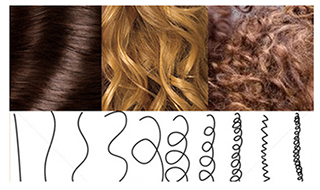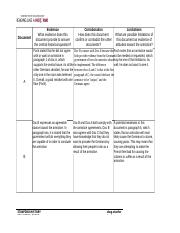Is Curly Hair Genetic?
Curly hair is a trait that many people are curious about. Whether you have naturally curly hair or have always wanted to know if your family could pass down curly locks, it is important to understand the science behind the genetics of curly hair. This article will explore the genetic basis of curly hair and provide insight into why certain people have curly locks.
What is the Science Behind Curly Hair?
Curly hair is unique, beautiful, and often mysterious. But what is the science behind it? Is curly hair genetic, or is it caused by something else? To understand the answer to this question, one must look at the science of hair and its structure.
Hair is made up of proteins called keratin, which is arranged in a strand-like fashion. The shape of each strand is determined by the shape of the follicle, which is the pocket from which the hair grows. People with curly hair have follicles that are curved or spiral in shape, while people with straight hair have follicles that are straight in shape. This is what makes the difference in the appearance of the hair.
Genetics plays a major role in the shape of follicles, as certain genetic markers determine the shape of the follicle. If both parents carry the genetic trait for curly hair, the child is likely to have curly hair. However, the shape of the follicle can also be affected by environmental factors such as hormones or exposure to chemical hair products.
In conclusion, the science behind curly hair is a combination of genetics and environmental factors. Although genetics plays a major role in the shape of the follicle, environmental factors can also play a role in determining the shape and appearance of the hair.
How is Curly Hair Inherited?
When it comes to the genetics of curly hair, the answer is not as clear-cut as you may think. There are many factors that contribute to whether someone has curly hair or not, and it is a complex subject that has been studied for decades. To understand how curly hair is inherited, it’s important to understand the basics of genetics.
Hair texture is determined by a combination of genetics and environmental factors. Genes play an important role in determining the shape of the hair follicle, which affects the type of hair that grows from it. Those with curly hair usually have a rounder follicle, whereas those with straight hair have an oval-shaped follicle.
It’s important to note that curly hair is not necessarily inherited from either parent. Instead, it is determined by a combination of genes that are passed down from both parents. When it comes to curly hair genetics, a person’s hair traits will be a mix of both parents’ traits.
In addition to genetics, other factors such as hormones, lifestyle, and diet can also play a role in determining someone’s hair texture. These factors can affect the way the genes are expressed, which can alter the type of hair an individual has.
While the genetics of curly hair can be complex, understanding the basics can help you better understand how curly hair is inherited. Knowing the basics of genetics can help you make informed decisions about your own hair care and the care of your family members.
What Are the Different Types of Curly Hair?
Curly hair is a unique trait that can vary from person to person. It can range from tight and kinky to soft and wavy. There are a variety of different types of curly hair, each of which is determined by genetics. Knowing the type of curls you have can help you determine what products, techniques, and styling will work best for your hair.
The most common types of curly hair are wavy, coiled, and kinky. Wavy hair is usually described as having a “S” pattern and is usually the easiest to manage. Coiled hair is more tightly curled and usually has an “O” pattern. Kinky hair is the tightest and most difficult to manage. It has an “S” and “Z” pattern and is usually the most prone to breakage and damage.
In addition to these three primary types, there are a variety of other curly hair patterns, including corkscrew curls, ringlets, and waves. These patterns are usually determined by the shape and structure of the hair follicles. The diameter of the follicle influences the type of curls that are produced.
When it comes to taking care of curly hair, it is important to know what type you have. Different products and styling techniques will work better for different types of curls, so it pays to know what your hair type is and how to care for it. With the right products and techniques, you can keep your curls looking healthy and vibrant.

Can Curly Hair Be Changed or Tamed?
Curly hair is one of the main genetic traits that many people possess. But can curly hair be changed or tamed? Many people want to know if this is possible. The answer is yes, but it isn’t always easy.
There are a few ways to change or tame curly hair, such as chemical treatments, heat styling, and using specialized shampoos and conditioners. Chemical treatments can help to reduce curl and make hair more manageable. Heat styling can be used to straighten, relax, or even add volume and definition to the curls. Specialized shampoos and conditioners can be used to help reduce frizz and help to keep the curls in check.
However, it is important to keep in mind that some hair types may be more resistant to change than others. It is also important to remember that any treatments or styling techniques used on the hair should be done with caution as they can cause damage if not done properly.
Ultimately, it is possible to change or tame curly hair, but the best way to do so is to understand the specific needs of your hair type and work with a professional to ensure that the treatments and styling techniques used are safe and effective.
What Are the Advantages and Disadvantages of Curly Hair?
Curly hair is an amazing gift – it can make you look stunning and unique. But it’s not always easy to manage, and it can come with both advantages and disadvantages. For those with curly hair, understanding the pros and cons is the first step to learning how to get the most out of it.
The advantages of curly hair include its versatility – you can wear it straight, wavy, or curly depending on the occasion. It also tends to look fuller and bouncier than straight hair, and is easier to style into updos and other intricate hairstyles.
The disadvantages of curly hair include its tendency to be dry and more difficult to manage than straight hair. It also usually requires more products and maintenance than straight hair, such as regular conditioning, deep conditioning, and the right products to keep it looking its best.
Overall, curly hair is a fabulous asset that can be a real show-stopper. If you have it, be sure to take the time to learn how to manage your curls and keep them looking healthy and beautiful. With a few tips and tricks, you can make the most of your curly hair and look fabulous.
Summary and Conclusion
When it comes to the fascinating question of whether curly hair is genetic or not, the answer is a resounding yes. Through the use of scientific research that has been conducted over the years, we now know that the genes that determine hair type and texture are inherited from our parents. The genes that are responsible for curly hair are usually located on the X chromosome, meaning that it is typically inherited from the mother. While it is true that environmental factors such as diet, exposure to chemicals, and age can affect hair texture, genetics plays the biggest role.
In conclusion, the answer to the question of whether curly hair is genetic is a definite yes. Knowing which genes are responsible for curly hair can give us a better understanding of our hair type and texture, as well as the types and textures of our family members. With this knowledge, we can make informed decisions about our hair care routine and lifestyle, as well as educate ourselves on related topics.
FAQs About the Is Curly Hair Genetic?
Q1. What are the causes of curly hair?
A1. Curly hair is caused by a combination of genetics, hormones, and the shape of the hair follicles.
Q2. Does everyone have the same type of curly hair?
A2. No, everyone has a unique combination of genetics, hormones, and follicle shape, which means that each person will have a different type of curly hair.
Q3. Is there a way to make hair more curly?
A3. Yes, there are styling products that can help enhance the natural curl of the hair. Additionally, some hairstyles such as braids or twists can help create more curl.
Conclusion
In conclusion, it is clear that genetics play a major role in the development of curly hair. Although there are other environmental factors that can influence the texture of the hair, the genetic makeup of the individual is the primary factor in determining if a person will have curly hair. As such, it is reasonable to assume that curly hair is, in fact, genetic.





